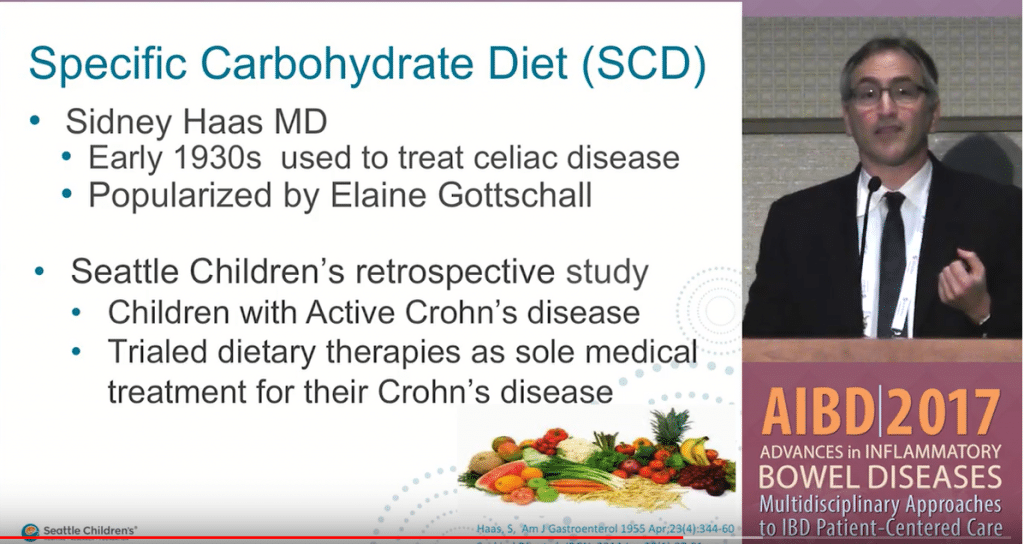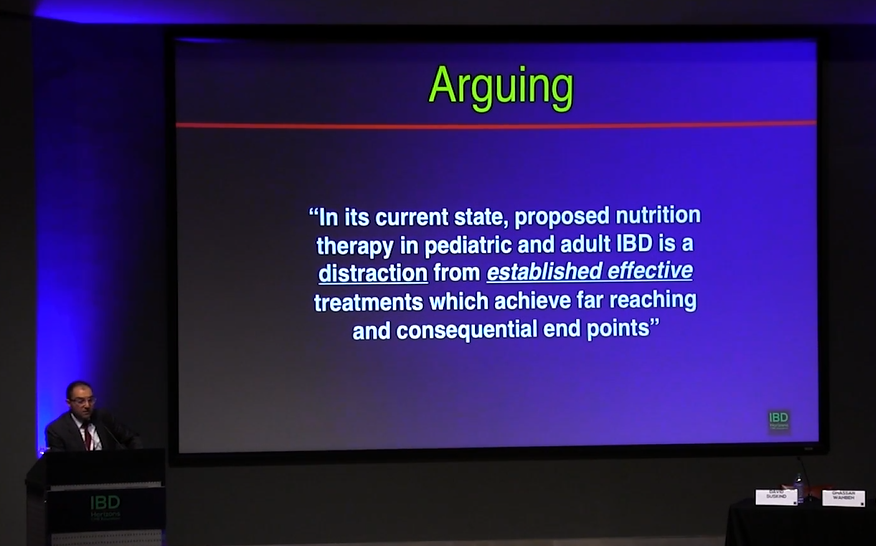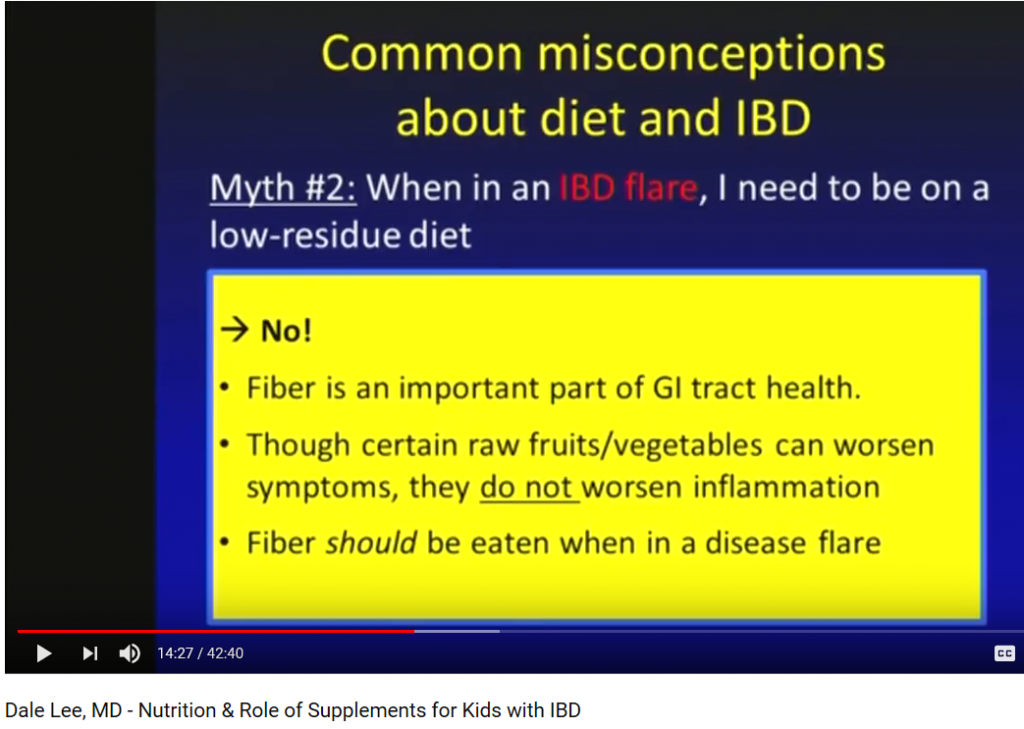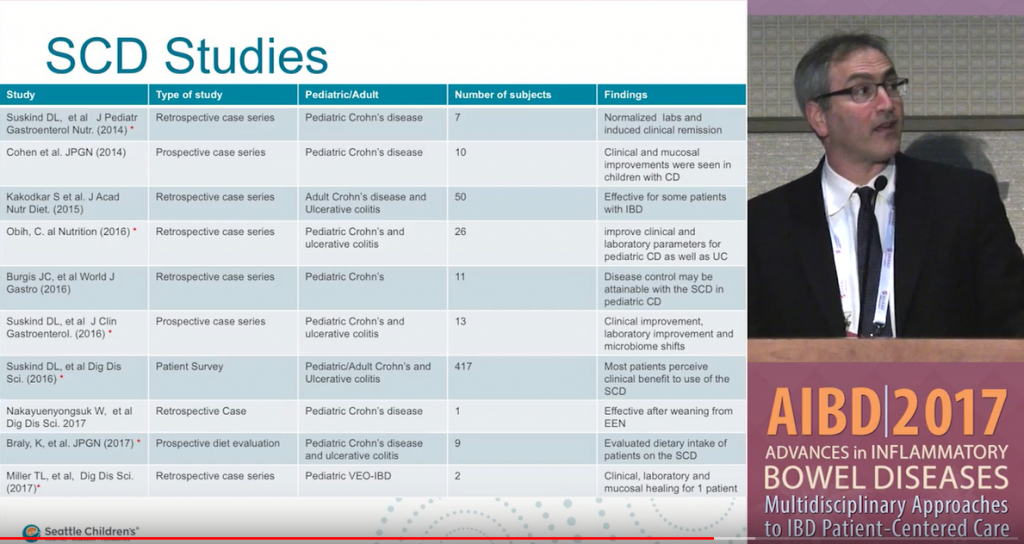
The Diet Debate
Does your gastroenterologist support dietary therapy for IBD?

IBD patients who are interested in medically guided and supervised dietary therapies often face resistance from their doctors. In order to be able to advocate for their choices, patients must understand the complexities of the diet debate. The following recorded presentations highlight different aspects of this debate, so that diet users can respond to doubt and distrust. We will start with a presentation that focuses on the limitations of diet therapies, and we will follow with presentations of doctors who are diet advocates.
We will start with a presentation that showcases the criticism of dietary therapies. Dr. Ghassan Wahbeh is the director of the Inflammatory Bowel Disease Center at Seattle Children’s Hospital.
In this presentation he is purposefully taking a contrarian role in an intellectual debate during the IBD Horizons Annual Conference. Note the title of the conference: Controversies and Debates in IBD Management 2017.
In fact, Seattle Children’s Hospital website quotes Dr. Wahbeh: “The role of the diet on its own clearly merits more study,” says Dr. Ghassan Wahbeh, who directs the IBD Center. “We’re working now to answer a whole host of questions, including which diet modifications make a difference, and whether ‘deep healing’ of the intestinal mucosa is possible with the SCD over the long run.”

Dr. Suskind: Diet is the most important modifiable risk factor in IBD
Advances in the use of nutrition for therapy in pediatric Crohn’s disease
Pediatric Track at the 2017 Advances in Inflammatory Bowel Diseases conference, ImedexCME, 2017
Nutrition in Immune Balance. Using dietary therapy to treat Inflammatory Bowel Disease, Seattle Children’s Hospital Nutrition Symposium, 2016
Fecal Microbial Transformation Diet – The Science behind the Specific Carbohydrate Diet, Seattle Children’s Hospital, 2016
Treating Crohn’s Disease Without Medication . Formula-based nutrition therapy (exclusive enteral nutrition, or EEN) can bring remission without medication. 2013

Common misconceptions and myths about diet and IBD . Dr. Dale Lee is a pediatric gastroenterologist who works closely with Dr. Suskind on researching and implementing nutritional therapies for IBD. 2017.

In this last video, Key Insights in IBD: 2017 Mastering Clinical Challenges & Emerging Therapies diet is discussed starting minute 10.55 and SCD is mentioned starting minute 13.22.
Dr. David Rubin and Dr. Dermot McGovern: “dietary interventions have always been very tough to study, but now, with the microbiome we have a more objective read-out… prospective studies on SCD and Mediterranean will be very beneficial for patients, but there is a lot of work yet to be done.”
In conclusion
- Doctors who support diet therapies emphasize that diet alone does NOT work for everyone. It is important to follow objective parameters: labs, stool markers, endoscopy, imaging.
- Our health-care systems are not well adapted to support doctors who use diet as medicine. Doctors are required to see many patients every day. There is not enough time to teach and discuss dietary therapy with patients in a typical 15 minutes doctor’s appointment.
- In most cases, there are not enough knowledgeable medical dieticians on staff, so referral options are limited.
- While pharmaceutical companies fund research and compensate doctors, there is no compensation and no reward for doctors who take extra time to learn and use dietary therapies.
- Doctors are exposed to hospital policies, liability claims and peer judgment.
- In our modern culture we expect doctors to diagnose and prescribe, not necessarily to heal. The healing responsibility is on you – the patient!
- Even when diet cannot CURE – diet can HEAL and support wellness.
More resources:
- Medical Guidance on dietary therapies for IBD can be found on the NIMBAL site
- Seattle Children’s Hospital
- SCD Research: Raman Prasad maintains a comprehensive list of studies and articles related to the Specific Carbohydrate Diet on his website.